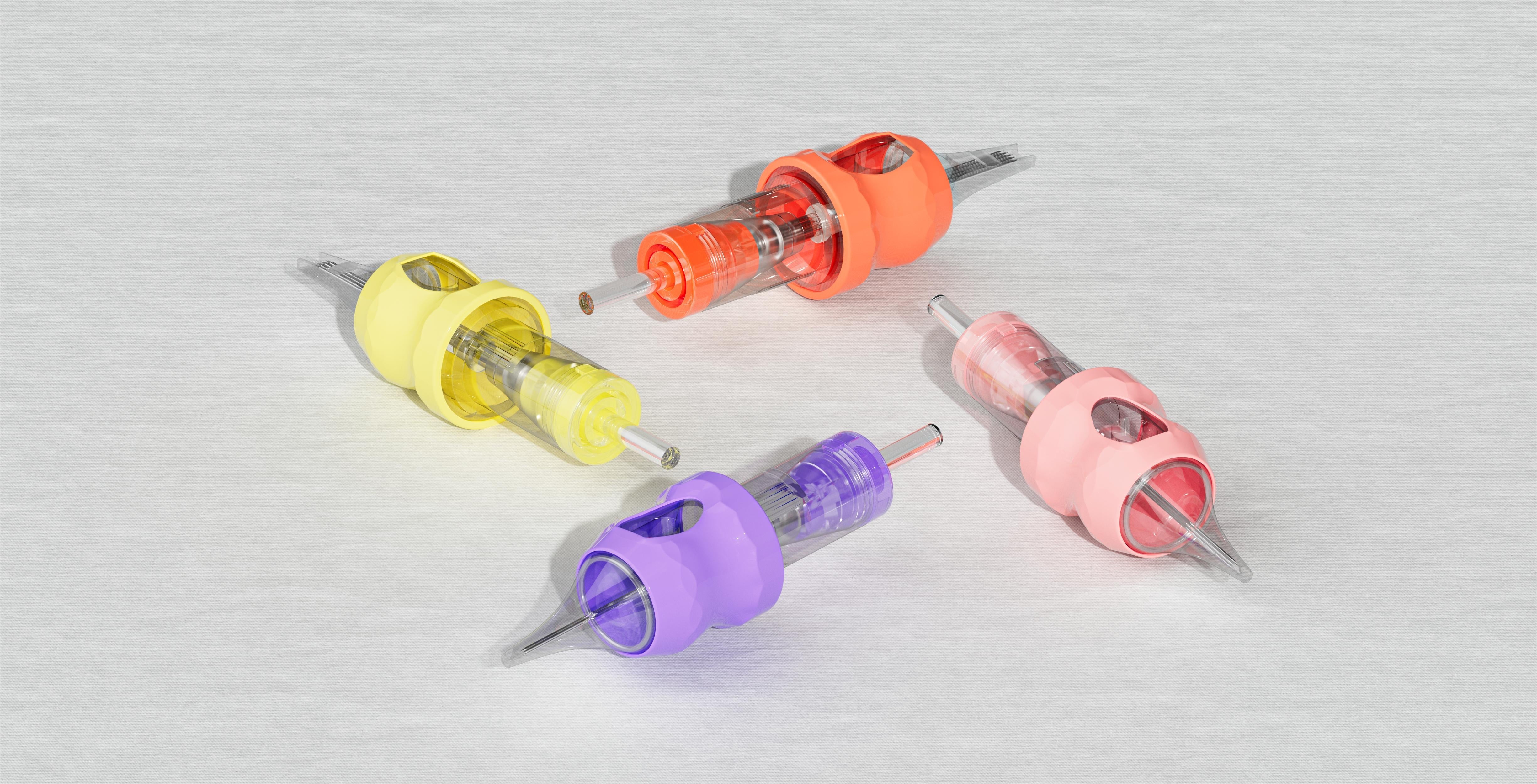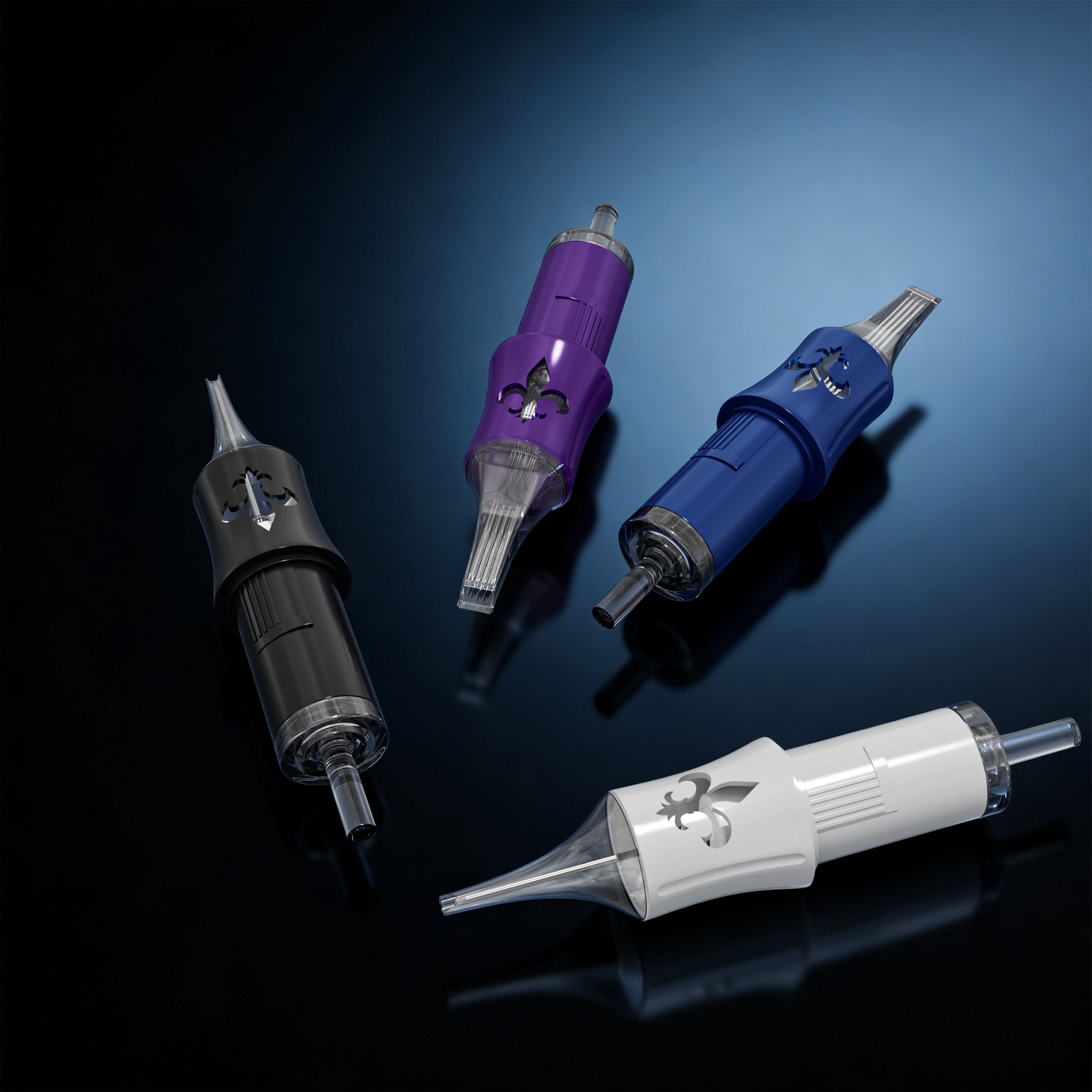For any tattoo artist—whether you’re just starting or deep into your professional journey—the choice of tattoo needles plays a critical role in the quality of your work. It’s not just about having the best tattoo gun or the highest-rated tattoo ink; your needle configuration, quality, and compatibility with your machine dictate how clean, precise, and comfortable the experience is for both you and your client.
In this blog, we’ll dive into the different types of professional tattoo needles, how they affect tattoo techniques, and what to consider when choosing the right tattoo needle cartridges for your style. Whether you're using cartridge needles with a rotary pen or traditional bar needles with a coil machine, the right decision can elevate your art.
Understanding Tattoo Needle Types: A Quick Overview
Before discussing technique, it's essential to understand the different types of tattoo needles and what they’re best used for.
- Round Liner (RL) – Perfect for crisp lines, outlines, and dot work.
- Round Shader (RS) – Great for shading small areas or color packing.
- Magnum (M1/M2) – Designed for blending, shading, and coloring large areas.
- Curved Magnum (RM) – Offers smoother shading, especially on sensitive skin.
- Flat (F) – Useful for geometric lines or bold shading.
Today, most professionals prefer tattoo needle cartridges, which are pre-configured and disposable, ensuring hygiene and convenience. They also make switching between needle configurations mid-session quick and effortless.

How Professional Tattoo Needles Affect Technique
1. Line Work: Precision Begins with the Right Needle
When you’re focused on delivering clean outlines, your tool must respond like an extension of your hand. Round liner needles with tight groupings help achieve sharp, bold lines. The diameter (commonly 0.25mm to 0.35mm) also plays a role—smaller diameters are better for fine details, while thicker ones offer bold presence.
Pairing your tattoo gun needles with a steady hand technique, proper depth control, and consistent machine speed will produce even, unbroken lines. Many professionals recommend starting with 3RL or 5RL for general outlines and graduating to tighter groupings for high-detail work.
2. Shading: The Magic is in the Spread
Smooth gradients, soft blends, and realistic shadows all stem from excellent shading. Magnum needles are ideal here, with curved magnums (RM) offering extra finesse as they follow the contours of the body more naturally.
When shading, technique matters: use a pendulum or circular motion, adjust voltage for smoother transitions, and pay attention to needle angle. The wider the spread (e.g., 13RM or 15M1), the more surface area you can shade, but also the more control you’ll need.
Pro Tip: Always test needle behavior on synthetic skin before applying it to a live canvas—different tattoo machine needle brands can behave differently even with the same grouping.
3. Color Packing: Density and Saturation
Achieving vibrant, saturated color requires not just high-quality ink, but also the correct needle configuration. Round shaders or magnums with a medium taper are preferred for pushing pigment efficiently into the skin.
In this context, cartridge needles shine—they often feature membrane or tension systems that improve pigment flow and reduce ink splatter. This leads to less trauma on the skin and a more pleasant healing process.
4. Blackwork & Dotwork: Consistency is Key
When working with patterns, stippling, or intricate textures, fine tattoo needles with a small grouping (such as 3RL or single needles) offer the control needed for these meticulous styles. Tattoo artists often use rotary machines for better control and lower vibration in this context.
Consistency in hand motion and needle pressure ensures even dot distribution. Your skill is essential, but the right tattoo needle cartridges amplify your control.

Choosing the Right Tattoo Needles for Your Machine
Your machine matters—rotary pens and coil machines differ in how they interact with needles. While most modern rotary machines support cartridge needles, coil machines still rely on traditional long-bar needles.
Make sure your tattoo machine needle choice is compatible:
- Rotary Tattoo Pens → Use cartridge needles (easy to change, low vibration)
- Coil Machines → Use traditional needles with tubes
If you're not sure, most online shops allow you to order tattoo needles in trial packs to test compatibility.
Sterilization, Packaging, and Quality: What to Look For
Professional artists should only use individually packed, sterilized tattoo needles. Look for EO gas sterilization and expiration dates on each cartridge. Disposable cartridges reduce cross-contamination risks, making your studio safer and more compliant with health regulations.
Well-known brands will always mark needle configuration, diameter, taper, and expiration date clearly. If you're unsure where to buy tattoo needles, go with verified vendors or major marketplaces offering tattoo needles for sale with solid customer reviews.
Where Can I Buy Tattoo Needles Online?
Whether you're restocking your studio or testing a new configuration, buying online offers access to variety and better prices. Here are a few options:
- Neebol Tattoo – Reliable source for high-quality cartridge needles in multiple groupings.
- PainfulPleasures – A large variety of tattoo needles and ink, with global shipping.
- Kingpin Tattoo Supply – Trusted by professionals, offering curated kits and needles.
- Amazon & eBay – Good for beginners or practice use, but be cautious of quality.
Search terms like "tattoo needles nearby" or "where can I buy tattoo needles" can help you find local suppliers if you prefer to inspect products in person.
Tips Before You Buy Tattoo Needles
- Always check compatibility with your tattoo machine.
- Match the needle grouping with your intended technique.
- Read reviews and avoid unbranded supplies.
- Start small if trying a new brand—order test packs before bulk buying.
Conclusion: Every Line Begins with the Right Needle
A true professional knows that a needle isn’t just a tool—it’s a brush, a chisel, a sword. By understanding how different needle types impact your tattooing technique, you’ll not only improve your artwork but also protect your clients' skin and ensure cleaner, longer-lasting results.
Whether you’re looking to buy tattoo needles for lining, shading, or coloring, choosing quality, understanding usage, and matching to your machine will always set your work apart.









Share:
Small Tattoo Ideas: Cute, Meaningful, and Timeless Ink for Everyone
Neck Tattoos: Bold Statements, Designs, Pain Level & Aftercare Tips